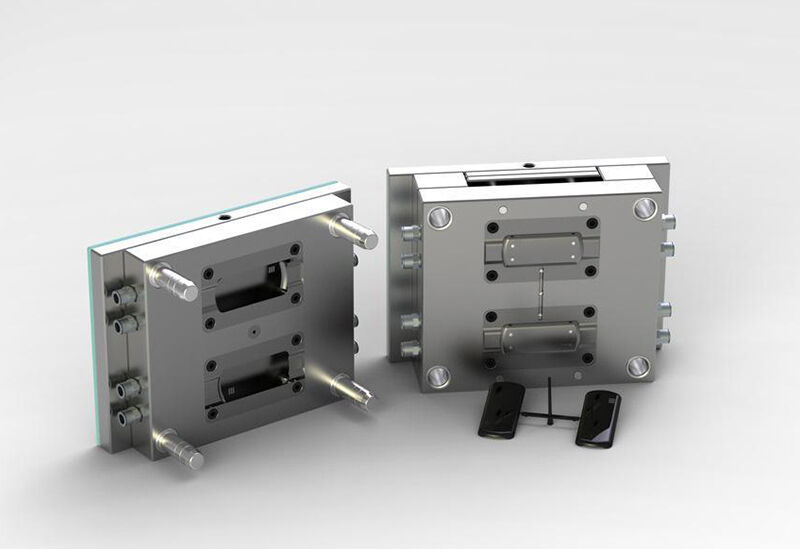Rapid Tooling
WHAT IS RAPID TOOLING ?
Rapid Tooling, also called Prototype Tool or Soft Tool, is the best option when your prototype and design is tested successfully and you are going to do a further series of test to your parts, or display them to your different potential customers or distribution agents or firstly launch them to market. During these stages, only a certain quantity finished parts from the final material is required. If you want to get your plastic parts quickly to the market, especially for small business or entrepreneurs. rapid tooling is the best manufacturing option and plays a critical role in different industries.
Advantage of Rapid Tooling
1
Time and Cost decreased dramatically
A rapid tooling will help you keep your product development time shorten and cost saved, which makes your product more competitive in the market. In this case, you don’t have to invest too much to the tool during the product development when you don’t know if the product will be successfully sold in the market.
2
Continue Improvement of design for production line
Through rapid tooling, you can get the finished products to do a further design and market test, which will help you do a long-term product analysis and production planning. This will help your company establish your product production planning and pricing strategy.
3
Produce
on-demand parts
Rapid tooling can be used to make multiple parts in very short time. Special molds or tools can be made immediately for on-demand parts and keep mold modification when the design is changed. Rapid tooling also has a main advantage that can Therefore, rapid tooling can be used to create plastic parts for commercial commodities when a large scale and long term production for a part is not needed.
To learn more about our rapid tooling service, contact us now.
Rapid Tooling Types
Rapid tooling types can be made from metals like aluminum or steel. P20 is the very common steel that used in rapid tooling.
- Aluminum Tools:
Aluminum tools have the advantage of machining fast and material cheap, but it doesn’t have the same thermal property and cooling as a standard steel tool. That is why a lot of customers not go to aluminum molds because the cost saved doesn’t bring the good quality parts as from steel tools.
- Steel Tools:
P20 is often used as a cost-effective tool and with the careful maintenance and the tool will not rust within the tool life cycle.
WHAT IS PRODUCTION TOOL?
When your product is successful in design test and marketing test, you will go to production Tools.
Production tool is the tool used to produce the products in high volume, we also simply call it mass production. The production tool will be designed depending on your budget and your quality request.
What quantity do you really want in total and how long will the project be active? Always ask these two questions before you start the production tool project. Production tool is often made from harden steel with heat treatment and surface hardening which is suitable to repeat use and maintain long time. Production tool also will be designed more complex and normally will have multiple cavities in order to reduce injection molding cost and lead time.
Tooling is a big investment in product development. How to reduce the cost in tooling is one of the important and critical factors in product development success from a financial perspective. Our company has well experience in mold making and we can suggest and help customers determine what type of tooling and what tool life to choose.

The Advantages of Our Mold Making
· Various Material and finish.
· Short Lead time:
1 to 3 weeks you can have your parts with durable quality in your hand.
· Various Tool Material:
aluminum, P20,NAK80, harden S136 and other harden tool materials.
· Flexible tool life:
50,000 to 1000,000 shots.
· Automatic mechanical hand in large scared production.
Our Mold Making Process
DFM and Mold Flow Analysis
After project planning is finished, we will start DFM and send it to customer for approval.
DFM include the basic data, injection method, molding parting line analysis, draft analysis, wall thickness analysis, design improvement suggestion and so on. We can also provide Mold Flow Analysis if customers require.
Tool Design and Tool Making
After DFM is approved by customer, we will start tool design and tool making. During the took making, we will send our tool make gantt chart to our customer with tool making schedule detail and keep customer posted with tool making status.
Mold Trial
After mold trial, we will inspect the first off samples and send it to customer for approval. For every project, there is an assigned PM to communicate directly with the customers.


Our Mold Making and Injection Molding Case Study
Request A Quote
